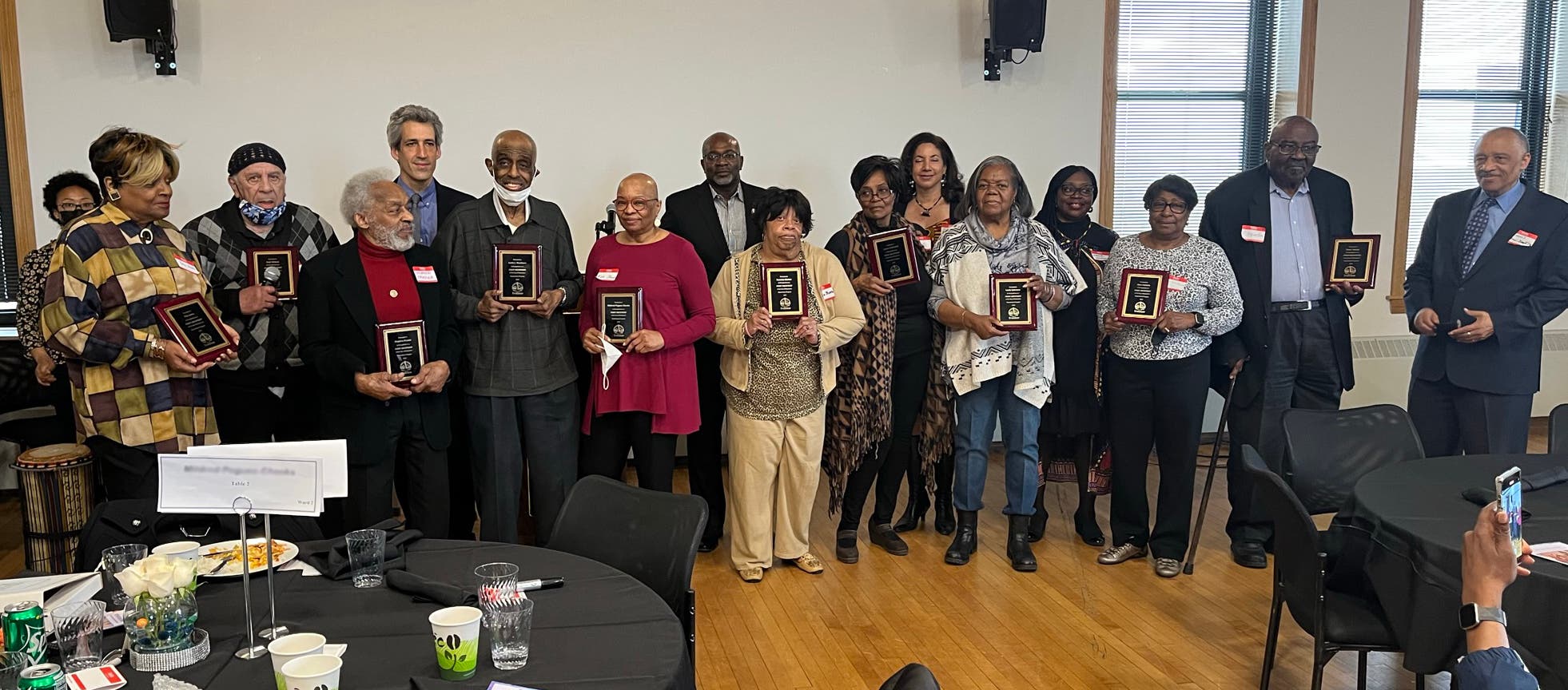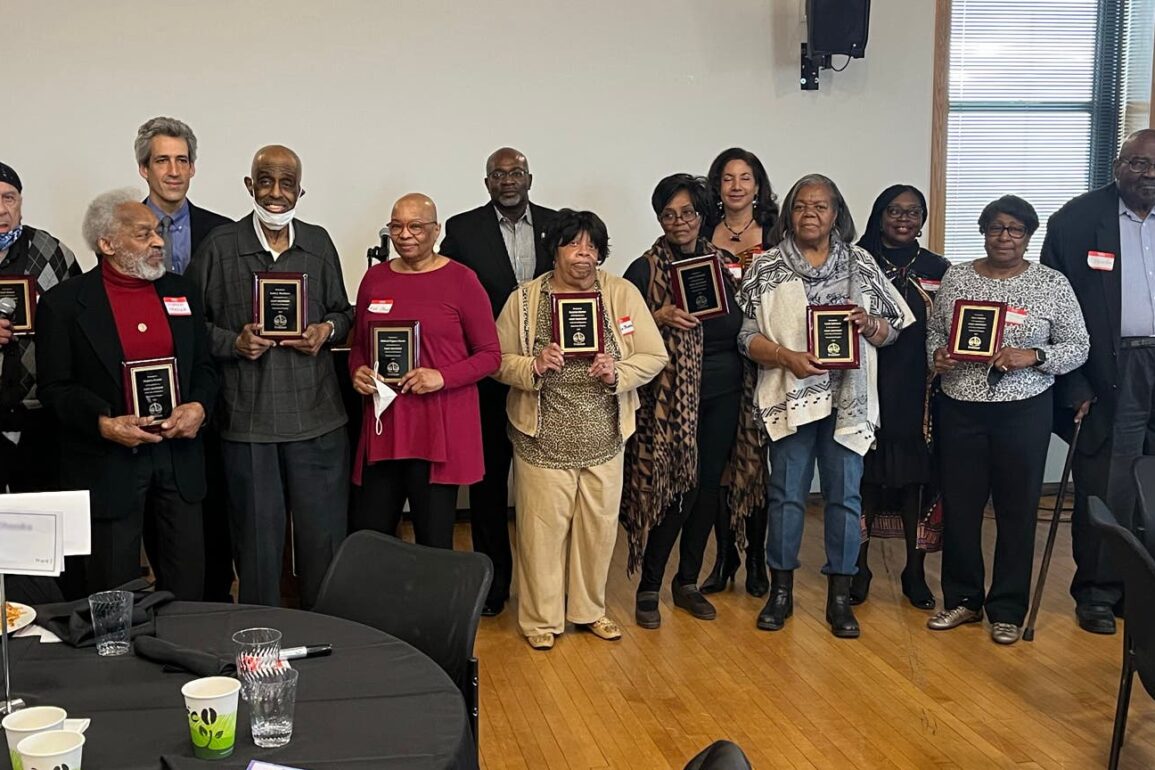EVANSTON, IL — More than three years after aldermen approved a plan to distribute cash to Black residents and their descendants, a conservative legal nonprofit filed a class action lawsuit arguing that Evanston’s municipal reparations program is unconstitutional.
Judicial Watch filed a federal complaint Thursday on behalf of six Evanston residents alleging that the reparations program violates the equal protection clause of the 14th Amendment.
“The Evanston, Illinois’ ‘reparations’ program is nothing more than a ploy to redistribute tax dollars to individuals based on race,” Judicial Watch President Tom Fitton said in a statement.
Find out what’s happening in Evanstonwith free, real-time updates from Patch.
“This scheme unconstitutionally discriminates against anyone who does not identify as Black or African American,” Fitton said. “This class action, civil rights lawsuit will be a historic defense of our color-blind Constitution.”
The city’s reparations program was established to provide compensation for housing discrimination that took place between the creation of the city’s zoning code in 1919 and the passage of its fair housing ordinance in 1969.
Find out what’s happening in Evanstonwith free, real-time updates from Patch.
Neither Margot Flinn, Carol Johnson, Stasys Neimanas, Barbara Regard, Henry Regard, Stephen Weiland, nor their parents or grandparents identify as Black, though the families of the half-dozen plaintiffs did live in Evanston between 1919 and 1969.
A reparations fund using the first $10 million in revenue from the city’s share of cannabis retailer taxes was established in 2019.
In 2021, the City Council allocated $400,000 to the first reparations initiative — $25,000 housing grants for the oldest eligible recipients, dubbed “ancestors” — called the Restorative Housing Program.
In 2022, elected officials committed an additional $10 million to the program, bringing the total amount pledged to $20 million, though sales tax confidentiality restrictions prevent city staff from disclosing the actual amount in the reparations fund. ($20 million would be enough cash to make $25,000 payments to 800 people.)
The first 16 “ancestors” were selected in January 2022 and had begun receiving grants five months later, according to city staff.
Last year, in response to complaints — some predating the program’s approval— that grants restricted to use in certain housing-related situations excluded many eligible Black Evanstonians, councilmembers amended the program to allow for direct cash payments.
According to the complaint, city staff has provided $25,000 payments to 129 people who identify as Black and lived in Evanston as adults prior to 1969, the so-called “ancestor” group. Another dozen have been approved but yet to receive payments.
The next group of eligible Evanston residents are “direct descendants” — people that have a relative within three generations that lived in Evanston prior to 1969 and identifies as Black.
A third group eligible for reparations includes those who do not identify as Black but can prove they experienced housing discrimination. City staff said only six people applied in that category.
As of January, the city has approved 454 applications but had not yet approved payments for direct descendants.
About 80 of those are expected to receive $25,000 payments this year. As of this month, city officials had met with 70 of them, of which 60 had opted for the direct cash payments, according to the complaint.

Judicial Watch contends that Evanston’s reparations program is over-inclusive and neglects to require recipients to demonstrate that they actually experienced housing discrimination during the relevant period 55 to 105 years ago.
The racial restrictions in the reparations program must survive “strict scrutiny,” according to Judicial Watch. That means that the use of race-based eligibility requires a compelling government interest.
“Remedying societal discrimination is not a compelling governmental interest,” its complaint said.
“Remedying discrimination from 55 to 105 years ago or remedying discrimination experienced at any time by an individual’s parents, grandparents, or great grandparents has not been recognized as a compelling governmental interest,” it continued. “[The city of Evanston] also has not demonstrated that its actions between 1919 and 1969 constituted a prima facie constitutional or statutory violation of anti-discrimination laws in effect at the time, let alone provide a strong basis in evidence that remedial action is necessary five-plus decades if not more than a century later.”
The reparations program also fails to limit eligibility to those that actually experienced discrimination and fails to consider race-neutral alternatives, the suit asserts.
The complaint seeks class action status for “all individuals who are able and ready to apply for the program and are eligible for a $25,000 payment but for the program’s race-based eligibility requirement.”
That would mean it includes everyone who lived in Evanston from 1919 to 1969 or who has a parent, grandparent or great-grandparent who did so, regardless of their racial identity.
Judicial Watch asked a judge to declare Evanston’s use or racial criteria as unconstitutional and order it to halt the program. The plaintiffs also want $25,000 each.
The D.C.-based activist group has a history of challenging policies it considers unconstitutional discrimination.
These include 2022 cases involving racial eligibility for city-funded scholarships in Ashville, North Carolina, a challenge filed on behalf of a Minneapolis taxpayer over a teachers’ contract with job protections to certain racial groups and a lawsuit filed in January on behalf of taxpayers in San Francisco that challenges a city program that discriminates in favor of Black and Latino transgender women in the city’s Guaranteed Income for Trans People.
Even before the Evanston City Council approved its reparations program, the city received a threat of a lawsuit from a conservative legal activist.
Edward Blum, who runs the Project on Fair Representation and has challenged affirmative action and other race-based policies, sent a letter to the city council in March 2021, warning that the reparations program was unconstitutional
“It provides benefits not on the basis of whether someone has suffered past discrimination, but solely on their skin color or national origin,” Blum said. “Ironically, the City’s approach would resurrect the very legal theories that were used to justify racial discrimination in the past and would perpetuate racial classifications in a way that is incompatible with the Fourteenth Amendment of the Constitution.”
At the time, then-5th Ward Ald. Robin Rue Simmons, the lead sponsor of the reparations program and chair of the city’s reparations committee who founded a reparations-related nonprofit consultancy after leaving office, said the city had received an offer of pro bono legal defense. No information was immediately available from a city spokesperson about which firm made the offer or whether it will defend the city in the Judicial Watch lawsuit.
Nick Cummings, then the deputy city attorney, said at the time that he was not surprised by the threatened legal challenge.
“It’s the reason why I’ve advised the subcommittee the way that I have, in order so that we can try and tailor something that actually would withstand constitutional scrutiny,” Cummings said.
Judicial Watch’s one-count putative federal class action complaint marks the second time the group has sued Evanston in connection with the reparations program.
About a month after the creation of the Evanston Local Reparations Restorative Housing Program in 2021, the group filed a lawsuit alleging the city had violated the Illinois Freedom of Information Act by failing to search for and provide records related to discriminatory housing practices.
That suit was dropped in August 2021, though representatives of the city and the nonprofit have yet to answer questions regarding what records, if any, the city provided in response.
Read more:
Get more local news delivered straight to your inbox.Sign up for free Patch newsletters and alerts.



